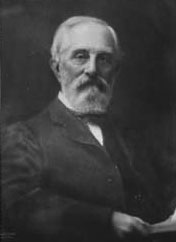John Hall

John Hall was born 1824 in Hull, Yorkshire. He attended school at Hull until the age of 10, and the next six years he spent in Germany, France and Switzerland. At the age of 16, upon returning to Britain, he entered the office of a London merchant, and in 1845 he joined the Post Office.
After reading Weld's Hints to Intending Sheepfarmers in New Zealand, Hall decided to emigrate. He sailed to New Zealand in the Samarang, landing in Canterbury in 1852. He travelled the south and as far north as Hawke's Bay and Wairarapa, before deciding to settle south of the Rakaia.
His political career began when he was elected to represent Christchurch County district in the Provincial Council in 1853, and remained on the Council until abolition, except when he was in Britain.. In November 1856 he was appointed resident magistrate for Lyttleton, sheriff and commissioner of police, and later went on to hold higher such positions.
In February 1862 the Christchurch town council was established, and Hall was elected chairman. In February 1866 he resigned his seat in the Legislative Council and contested the Heathcote seat in the House of Representatives. In May he became a member for Rakaia in the Provincial Council, and in August he was appointed Postmaster-general in the Stafford ministry, a position which ill-health compelled him to resign in 1869.
Ill health also became a factor in Hall's decision to resign from his new position as Colonial Secretary in March 1873. He withdrew from provincial politics for good and sailed for England. On his return he was for a week or two a member of the executive in Atkinson's ministry (1876). Three years later, in 1879, he won the Selwyn seat and became leader of the opposition, moved an amendment on which Grey was defeated and was himself invited to form a ministry. Hall became premier on 8 October 1879, however the burden of office took its toll on his health and he resigned the premiership to Whitaker in April 1882. His Knighthood was received a month later.
Hall retired from Parliament in November 1893, known most notably for his support of women's suffrage. He had served in Parliament with slight intermissions for 40 years. In 1906 he was called upon to be mayor of Christchurch, but he died on 25 June 1907.
Document Actions

 Like us on Facebook
Like us on Facebook